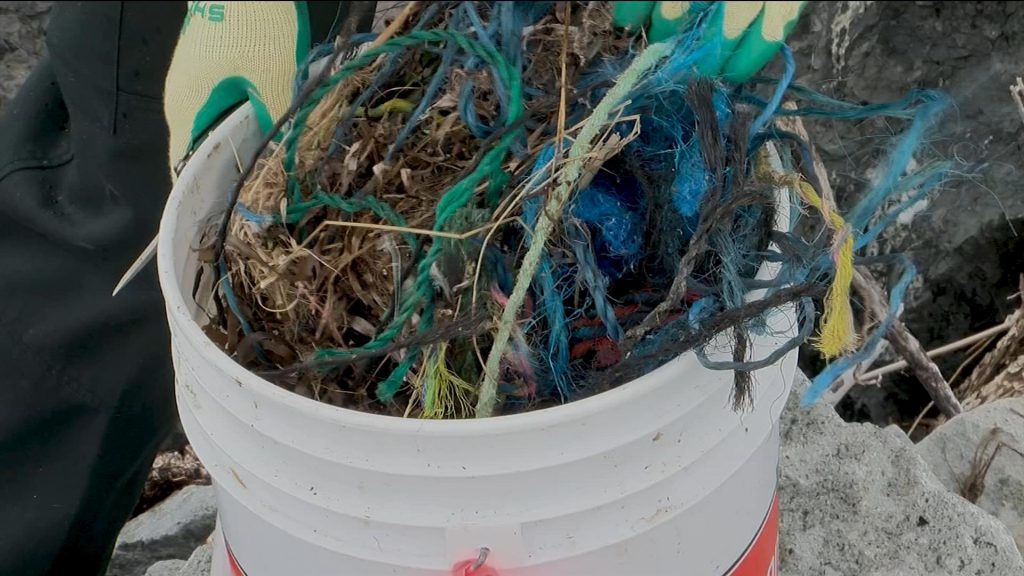
WATCH: The second-annual Baynes Sound Shoreline cleanup is underway and the shellfish industry remains responsible for the majority of debris being found.
Volunteers had only been on a beach in Union Bay for 45 minutes Wednesday when some of their bags were already full of debris.
“In this bag is I’d say 99 per cent poly rope, a little bit of mesh and a liquor can,” said Fisheries and Oceans Canada Senior Shellfish and Aquaculture Biologist Shelley Jepps.
The multi-day clean up around Baynes Sound near Courtenay includes Fisheries and Oceans Canada (DFO), the Association for Denman Island Marine Stewards and the BC Shellfish Grower’s Association.
Several shellfish farms operate in the area and are responsible for the majority of debris that volunteers were finding.
“Half of the debris, half of the 40 cubic yards over the first two days has been attributed to the shellfish industry and the other half is from derelict, abandoned recreational vessels, beach goers, there’s the odd flip-flop and tires and coffee cups, that sort of stuff,” said DFO Aquaculture Biologist Chris Marrie.
The DFO conducts inspections at shellfish farms up and down the coast assessing conditions of license that are aimed at reducing debris.
“We assess conditions of license that are aimed at eliminating, reducing, minimizing debris that comes from shellfish aquaculture facilities,” said Jepps. “Conditions of license that require proper installation of predator netting, properly wrapped styrofoam and prevent the release of debris into the marine environment.”
DFO officers are out enforcing those rules.
“So we have a variety of different compliance tools available to us,” said Fisheries Officer Kirsty Walde. “It can be anything from a verbal to a written warning. We can also be involved in mitigating and getting the sites cleaned up collaboratively and that can escalate right up to court proceedings.”
They say the industry is changing and compliance is improving. Shellfish growers are even taking an active part in the clean up this week.
“So over the years we have made changes to the way that we farm our product,” said Fanny Bay Oysters General Manager Brian Yip.
“One of the things that comes to mind is the rope that you see on the beach sometimes, I would say that 99 per cent of the growers have been staying away from that.”
Most of the plastic picked up are larger pieces but microplastics are a major health problem for fish. A recent study by UVIC, VIU, the Vancouver Aquarium and DFO showed that more microplastics were not found by shellfish farms compared to other control sites.





